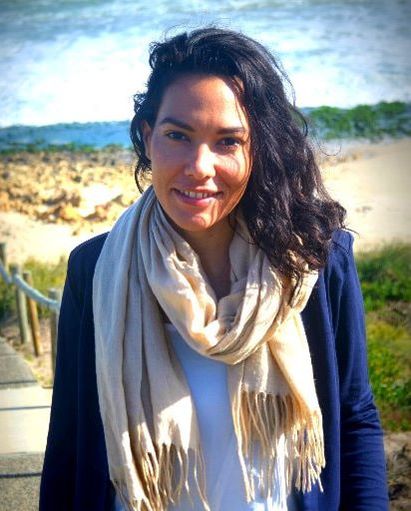Kia Dowell: CEO Codeswitch. Chairperson, Gelganyem TrustKia is a Gija woman from Warmun Community (Turkey Creek) in the East Kimberley of Western Australia. Her traditional Aboriginal name is Wadjbarreyal and her skin name is Nangala. As a Co-founder, Partner and CEO at Codeswitch, Kia is an experienced business consultant and executive coach with extensive commercial, cultural and community experience.
In June 2017, Kia also joined the Board of Gelganyem Trust as the female Director for the Tiltuwum family group connected to the Argyle Diamond Participation Agreement. She is the newly appointed Chairperson and is focused squarely on ensuring that the Gelganyem Group is equipped and positioned with the resources and capability to transform for the benefit of Traditional Owners and the broader East Kimberley region. Kia is passionate about working to support the growth of profitable and sustainable organisations that serve a greater social purpose for Aboriginal communities. With over 20 years of world class leadership development and 10 years exposure to global business practices, Kia uses her knowledge and expertise gained in Australia and the US to work with corporate, Government, NFP and civic organisations to strategically build models that lead to business success and leadership development to achieve positive and measurable community impacts. Kia has spent significant time with school, community and corporate audiences in the US, Vanuatu, Turkey, Mexico and across Australia sharing her experience, culture and lessons aimed at using business and leadership to create cultural connection. |
Title: Is Australia ready for an Aboriginal led transformation?
Overview: On 23 August 2016, The Australian published an article referencing the damning results of research conducted by the Centre for Independent Studies. It highlighted that a ludacris AU$5.9 BILLION A YEAR is spent in the portfolio of Aboriginal affairs. A portfolio that has ironically been linked to the forced closure of Aboriginal communities, withdrawal of utilities and redirection of responsibilities from Commonwealth to State Governments while also identifying the very real economic trend that is benefiting from our Communities remaining dependent on funding. At what point will we realise that pouring money and resources into a multi-billion-dollar industry that is focused on the DEFICIT of the people and communities it is designed to help is not effective? And at what point are we going to stop to address the fact that thousands of jobs are dependent on the Indigenous economy? The current investment and decision-making model is riddled with thousands of examples highlighting what happens when Communities are NOT in the driver’s seat when it comes to developing solutions to challenges impacting them, let alone the design or implementation of locally relevant programs. My question to you is this - why are we so comfortable maintaining the status quo of a multi-billion-dollar industry that continues to benefit from Indigenous disadvantage and is Australia genuinely ready for an Aboriginal led transformation that moves us towards the collective impact that will benefit all Australians?
Overview: On 23 August 2016, The Australian published an article referencing the damning results of research conducted by the Centre for Independent Studies. It highlighted that a ludacris AU$5.9 BILLION A YEAR is spent in the portfolio of Aboriginal affairs. A portfolio that has ironically been linked to the forced closure of Aboriginal communities, withdrawal of utilities and redirection of responsibilities from Commonwealth to State Governments while also identifying the very real economic trend that is benefiting from our Communities remaining dependent on funding. At what point will we realise that pouring money and resources into a multi-billion-dollar industry that is focused on the DEFICIT of the people and communities it is designed to help is not effective? And at what point are we going to stop to address the fact that thousands of jobs are dependent on the Indigenous economy? The current investment and decision-making model is riddled with thousands of examples highlighting what happens when Communities are NOT in the driver’s seat when it comes to developing solutions to challenges impacting them, let alone the design or implementation of locally relevant programs. My question to you is this - why are we so comfortable maintaining the status quo of a multi-billion-dollar industry that continues to benefit from Indigenous disadvantage and is Australia genuinely ready for an Aboriginal led transformation that moves us towards the collective impact that will benefit all Australians?


